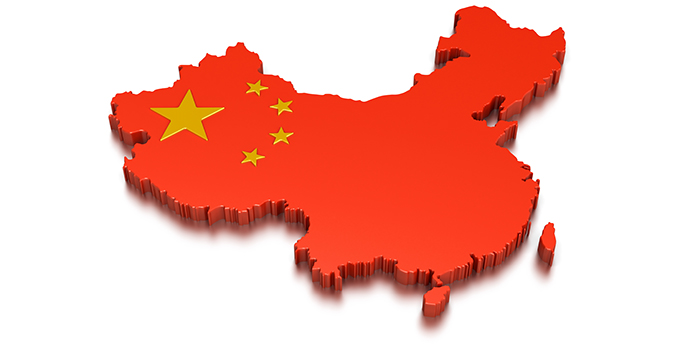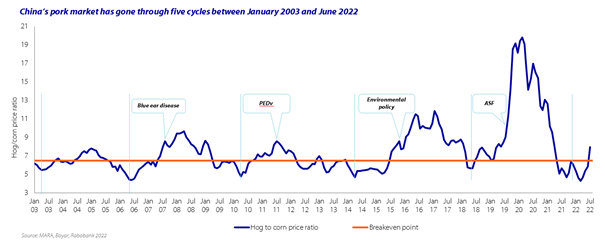According to a report from Rabobank, China’s pork industry has begun a new cycle which will offer considerable growth potential and opportunities for local and global players.
The new ‘upward’ cycle began in June 2022, say Rabobank, and is expected to run for less time than its previous cycles – five of which ran from January 2003 to June 2022, lasting for roughly three to four years each.
“We expect the new cycle to have less price volatility and a slightly shorter length compared to previous cycles,” says Chenjun Pan, senior analyst of animal protein at Rabobank. “Where cost leaders were the survivors from the previous cycle, in the longer term, winners will be those who are not only cost leaders but are also able to integrate supply chains.”
Rabobank research suggests that the newest cycle will see less price volatility and more government monitoring, with the main drivers and influencers of the cycle including policies, new industry structures, sustainability demands, and consumer trends.
According to the report, with China currently under a transitional period of economic and technological development, plus new trends affecting consumer demands, social issues, climate change and the need for emissions reductions will be spotlighted during the newest market cycle; leading to greater governmental oversight and further market consolidation.
However, Ms Pan notes that the new cycle will offer considerable growth potential for productivity developments, such as genetic and breeding systems; market consolidation, where competition between large players will increase; and international trade, with China expected to remain a huge importer of pork products.





